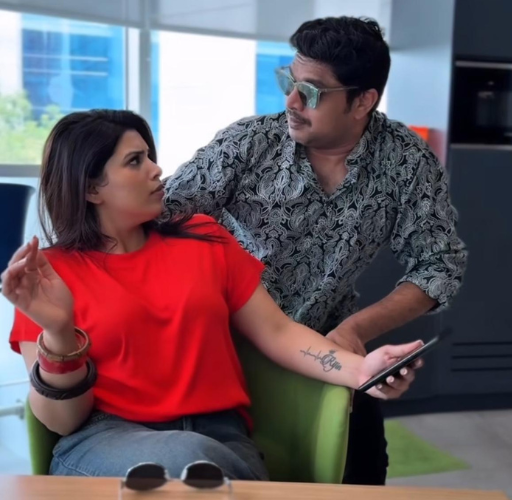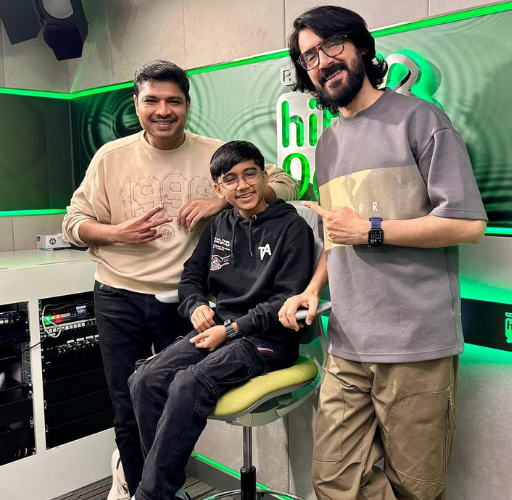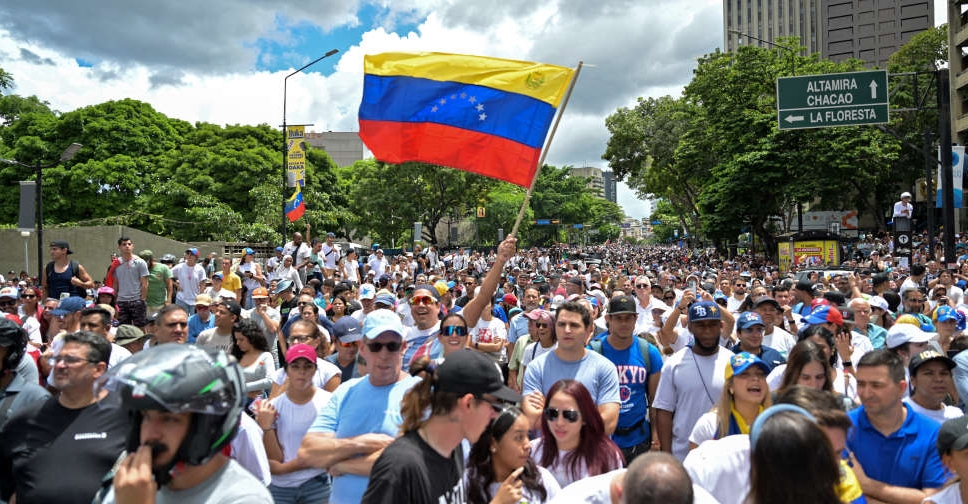
Venezuela’s opposition party has called for worldwide protests on August 17, against President Nicolas Maduro’s re-election.
The country’s National Electoral Council (NEC) declared sitting President Maduro the winner of the 28 July presidential election, granting him a third six-year term. Maduro reportedly won with 51.2 per cent of the vote. The opposition has declared the election results fraudulent, claiming their candidate, Edmundo Gonzalez, is the legitimate winner.
They have called on the council, whom they deem loyal to Maduro, to release detailed data from polling stations. The NEC said it has presented the records to the Supreme Court for verification, but not publicly. By their own count, the opposition has said they won 70 per cent of the vote, against Maduro’s 30 per cent.
"This message is for you- who do not recognize yourself in today's Venezuela, who are tired of having your family separated, who voted and want what you decided on July 28 to be respected," opposition leader Maria Corina Machado said on X.
The European Union, the United States, and several Latin American countries have backed the opposition’s stance and failed to recognize Maduro as the incumbent president. In response, Caracas recalled its diplomats from Argentina, the Dominican Republic, Costa Rica, Panama, Peru, Uruguay, and Chile – accusing them of attacking Venezuela’s sovereignty and interference in domestic affairs.
"The Venezuelan government reserves the right to take political and legal measures to guarantee protection of the right to self-determination. The Venezuelan government will resist any activities threatening peaceful co-existence," the Ministry of Foreign Affairs said.
The Organization of American States (OAS), which is considered at the forefront of foreign policy, diplomacy, and human rights in the Western Hemisphere, convened for a resolution that would force Maduro to release detailed tallies last week. The resolution received 17 votes in favour, zero against, 11 abstentions, and five absences- resulting in a failure to gain an absolute majority.
Meanwhile, Mexican President Andrés Manuel López Obrador has avoided siding with the opposition, saying there is no evidence of fraud. Brazilian President Luiz Inácio Lula da Silva claims it to be “a normal electoral process.”
Some leftist governments, such as Chile and Colombia- who would typically side with their leftist Venezuelan counterpart- have expressed doubt in the election’s credibility.
How have Venezuelans reacted?
Thousands of Venezuelans took to the streets around the county, following the electoral commission’s announcement. This prompted the deployment of security forces and the ramp-up of arrests. So far, at least 23 people have been killed, according to the Venezuelan Education-Action Program on Human Rights (PROVEA).
Security forces are reportedly being supported by paramilitaries, known locally as colectivos. They do not operate as a national unit, but have a presence in most Venezuelan provinces. The UN’s Independent International Fact-Finding Mission on Venezuela said it has been “receiving credible information about detentions, injuries, and deaths, as well as violence perpetrated by security forces and armed civilian groups supporting the Government.” These forces, dressed in civilian attire, have allegedly opened fire on protesters, resulting in at least six of the accounted deaths.
Amnesty International refers to them as "armed pro-government supporters who are tolerated or supported by the authorities."
Attorney-General, Tarek Williams Saab, said 1,062 people had been arrested so far. Dozens of threats have also reportedly been made against political activists and social leaders in response to the protests, which Maduro has said are fuelled by the far right.
President Maduro has recently talked about “Operation Knock Knock,” which consists of rounding up individuals with links to protests or the opposition. The purpose of the roundups is to dissuade further demonstrations by instilling fear of punishment. More than 100 children, aged 13 to 17, have reportedly been arrested, according to Amnesty International.
Currently, presidential candidate Edmundo Gonzalez and opposition leader Maria Corina Machado have gone into hiding. Last week, a criminal investigation was launched against them, for allegedly inciting civil disobedience and insurrection. The duo “falsely announced a winner of the presidential election other than the one proclaimed by the National Electoral Council, the only body qualified to do so” and they openly incited “police and military officials to disobey the laws,” Attorney-General Saab said on X.
How was Venezuela before the latest election?
Venezuela is currently undergoing an economic crisis. It has been marked with hyperinflation, with the Central Bank of Venezuela (BCV) officially estimating that the inflation rate increased by 53,798,500 per cent between 2016 and April 2019 under Maduro.
According to the United Nations, more than seven million Venezuelans have emigrated from the country of 30 million since 2013, primarily to other Latin American states and the United States.
The economic downturn was sparked during the rule of Hugo Chavez, Maduro’s predecessor and mentor. He came to power in 1998 promising socialist changes, using the country’s vast oil wealth to reduce poverty and inequality. Oil production decreased following several reforms, including firing thousands of oil workers who had gone on strike and exporting subsidized oil. Being an oil-dependent state, Venezuela’s economy collapsed when oil prices dropped from USD 100 per barrel in 2014 to USD 30 per barrel in 2016. The economy began growing once again in 2021, although remains crippled.
Maduro blames speculation by capitalists for the economic collapse. The US has imposed sanctions on the country for nearly two decades- preventing the Venezuelan government from accessing the U.S. financial system, freezing the bank accounts and other assets of the Nicolas Maduro administration, blocking oil imports from the state oil and gas company, PDVSA, and imposing penalties on individuals who the U.S. government determines have undermined democratic processes or committed human rights abuses.
Additional sanctions have been imposed under the Obama and Trump administrations, with the reported aim of ousting Maduro. They have made it difficult for Venezuela to export petroleum, Venezuela’s main source of revenue, as well as import essential goods- leading to shortages, and to the government turning to Iran and other allies that have defied the sanctions.
Analysts have said the heavy sanctions, alongside internal policies of the state, have contributed to the economy’s decline.
The 2018 presidential vote also saw contested electoral results. A lack of term limits, implemented under Chavez, has paved the way for indefinite rule. The current regime has historically stifled the opposition- leading to widespread protests in 2017 after the arrest of multiple opposition leaders and the cancellation of dialogue between the opposition and Maduro. Repeated contestation of electoral results amid unlimited term limits and restraining any opposition, combined with a crippled economy and violence, have resulted in the observed widespread discontent among Venezuela's population.
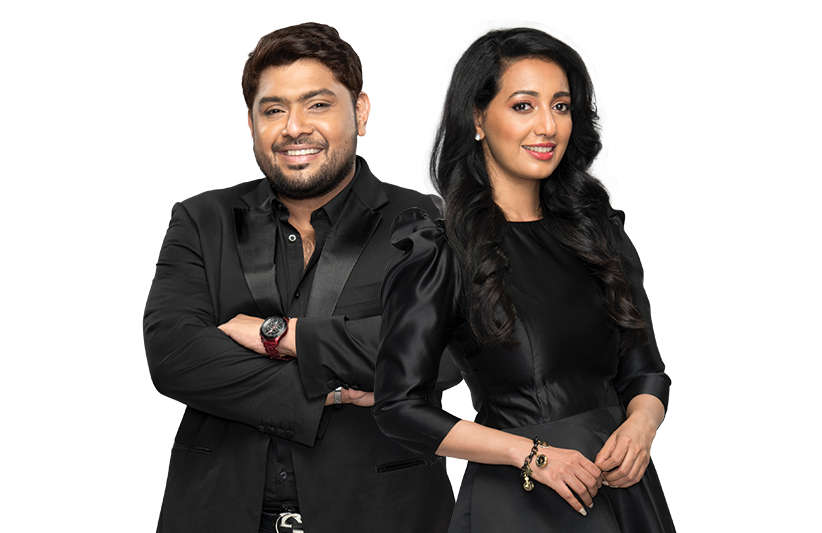


 Venezuela's Maduro to appear in US court, Trump says further strikes possible
Venezuela's Maduro to appear in US court, Trump says further strikes possible
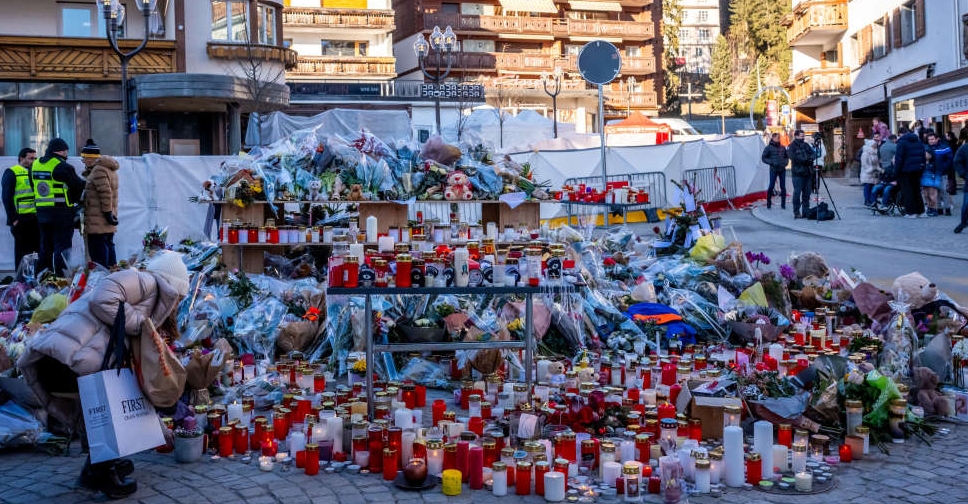 Pressure builds for answers over Swiss bar fire after victims identified
Pressure builds for answers over Swiss bar fire after victims identified
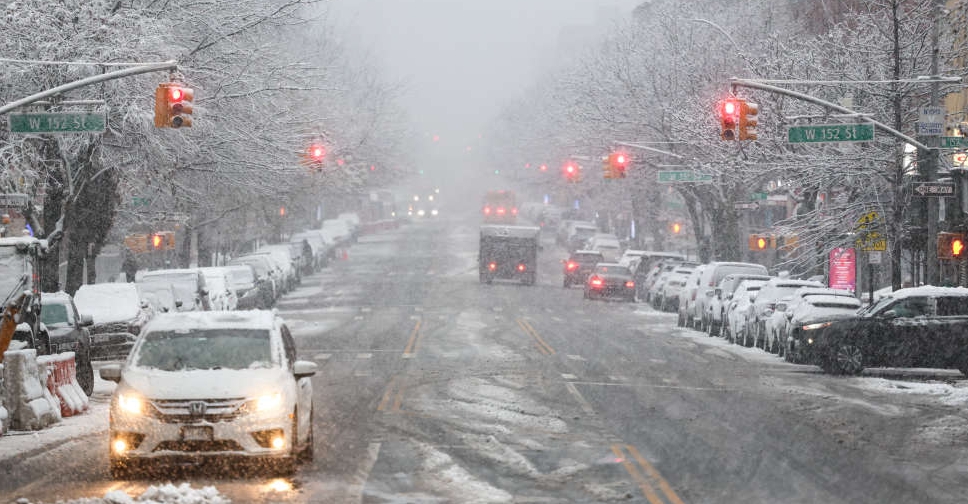 Snow cripples air, train and road traffic in the Netherlands
Snow cripples air, train and road traffic in the Netherlands
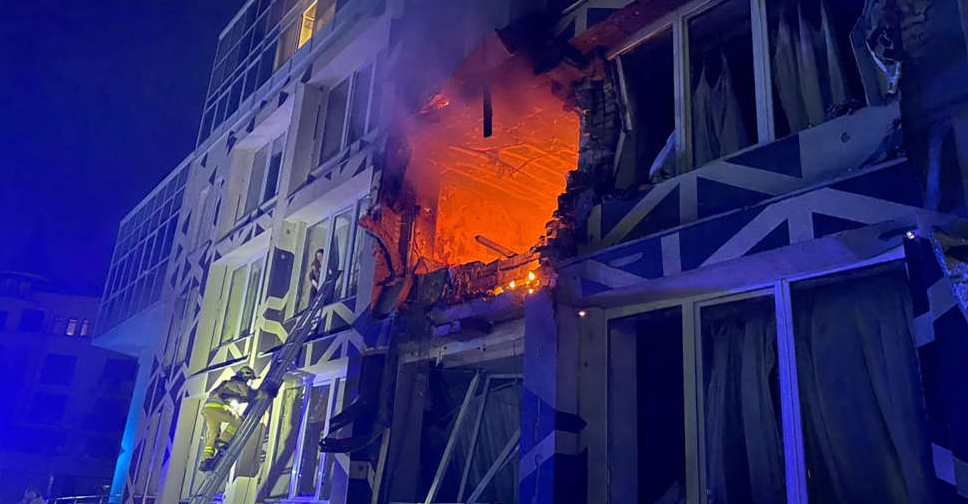 Ukraine says Russian strike on Kyiv leaves first civilians dead this year
Ukraine says Russian strike on Kyiv leaves first civilians dead this year

